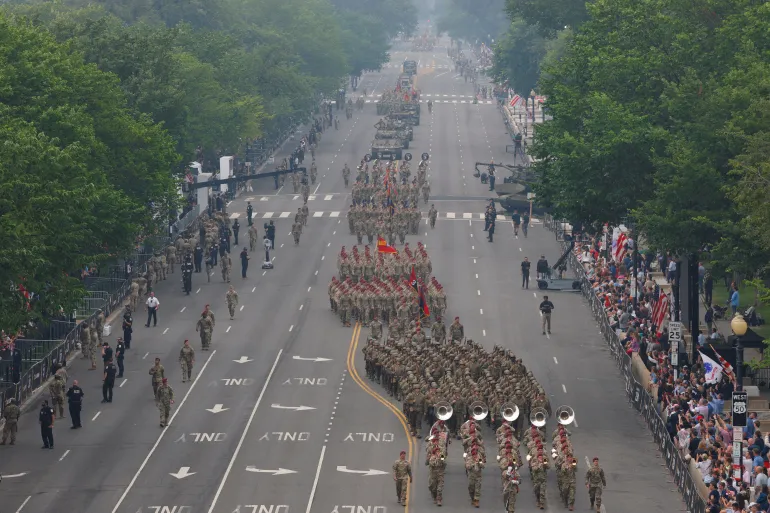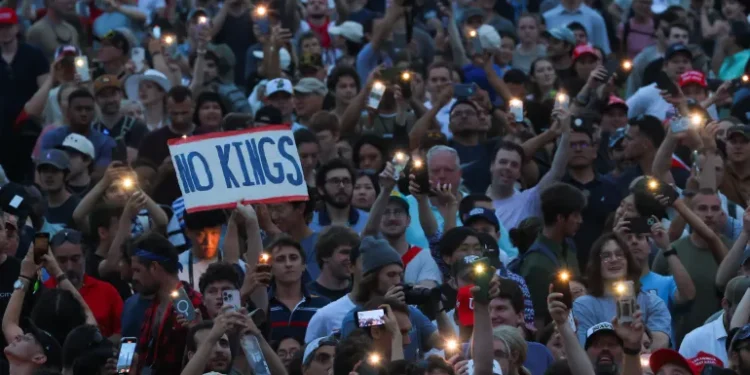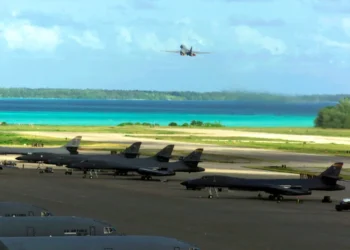The military parade held in Washington, DC to commemorate the 250th anniversary of the United States Army drew a range of reactions from attendees — from muted impressions to outright awe.
Described by some as “a little boring” and by others as “just wow,” the event featured nearly 7,000 soldiers, military flyovers, and a fireworks display. Adding to the occasion, the parade coincided with former President Donald Trump’s 79th birthday, further fueling both celebration and controversy surrounding the day.
June 14 was a day of dual milestones in the United States. While Trump attended a military parade in the capital to mark the historic occasion, cities across the country were gripped by widespread protests opposing his return to power.
In Washington, Trump took center stage at a parade featuring military bands, flyovers, and patriotic displays celebrating the Army’s founding in 1775. The President, who remains a deeply polarizing figure in American politics, praised the military’s legacy and emphasized the need for what he called “strong and fearless leadership” in the years ahead.

The Republican president said America is the “hottest country in the world” and will “soon be greater and stronger than ever before.”
But the celebratory mood was far from unanimous. Organized under slogans like “No Kings” and “Stop the Return,” thousands of demonstrators gathered in major cities including New York, Chicago, Los Angeles, and Atlanta to voice their opposition to Trump and his political influence. Protesters carried signs denouncing authoritarianism and warning against a rollback of democratic norms, with some drawing comparisons between Trump and autocratic leaders abroad.
Law enforcement was on high alert amid fears of potential clashes, but most rallies remained peaceful, with community organizers urging nonviolent expression. “This is not just about one man—it’s about the future of democracy,” said one protester in Philadelphia. “We’re here to say no to a second Trump term.”
As night fell, the contrast between the military pageantry in the nation’s capital and the chants echoing in streets nationwide offered a stark reflection of a country still grappling with its political identity—250 years after the birth of its Army.














